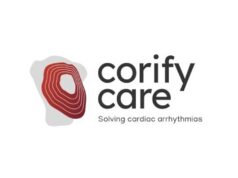
Implementation of a screening programme of all competitive athletes to avoid sports related sudden cardiac death is one of the hottest topics in sports cardiology. Researchers in Denmark have found new data that questions this practice, Bjarke Risgaard and Jacob Tfelt-Hansen discuss the findings.
Data that favours implementation of a screening programme of all competitive athletes mainly comes from a prospective, initially retrospective, Italian study in which it has been shown that pre-participation screening lowers the incidence rate of sports related sudden cardiac death in young competitive athletes (Corrado D et al, JAMA 2006;296:1593–1601). Several other studies have questioned these findings though. Nevertheless, screening of all competitive athletes is today recommended by the European Society of Cardiology (Corrado D et al, Eur Heart J 2005;26:516–524).
We believe that several important issues should be addressed before it can be stated whether these mandatory and most of all, expensive programmes should be implemented. Most studies have previously been conducted on young competitive athletes aged 12–35 years and the incidence rate of sports related sudden cardiac death in competitive athletes aged 36–49 years is unknown.
Furthermore, the incidence of sports related sudden cardiac death in athletes that do sport on a non-competitive level is largely unknown. In our opinion, we do not know who the athletes at the greatest risk are.
We have recently published the paper entitled “Sports related sudden cardiac death in a competitive and non-competitive athlete population aged 12–49 years: Data from an unselected nationwide study in Denmark” (Risgaard B et al, HeartRhythm 2014;11:1673–1681). Here we investigate the occurrence of sports-related sudden cardiac death in competitive and non-competitive athletes aged 12–49 compared to the occurrence of sudden cardiac death in the general population. Interestingly, we found that the incidence sports related sudden cardiac death does not differ between competitive and non-competitive athletes. The incidence increases, as expected, with increasing age. Most importantly, we show that sudden cardiac death in the general population is around three times higher than sports related sudden cardiac death in all age groups.
In our point of view, there are several reasons not to recommend a mandatory preparticipation screening programme. First of all, we do not think that the effect of preparticipation screening has been solid proven. This opinion has also been recognised by The Danish Society of Cardiology in two reports from 2006 and 2010 in which it is not recommended to screen for cardiovascular disease in athletes. Thus, the Danish recommendation is not in line with the ESC recommendation.
Second, we believe that even with improved ECG criteria’s a high number of false positive results leading to disqualifications are unavoidabl. Third, the impact on quality of life and the loss of the obvious beneficial effects on health have to be taken into account.
These new data, published in HeartRhythm, add in our point of view new data to an ongoing debate. If performed, screening should not be limited only to young competitive athletes since non-competitive athletes are in as high risk. Also sports related sudden cardiac death increases with age and therefore screening, if performed, should be for all ages. Lastly we believe it is questionable whether it is ethical acceptable to screen a selected population (athletes) and not the general population being in even higher risk of sudden cardiac death.
Bjarke Risgaard and Jacob Tfelt-Hansen are with the Department of Cardiology, Rigshospitalet and Danish National Research Foundation Centre for Cardiac Arrhythmia (DARC), Copenhagen, Denmark









